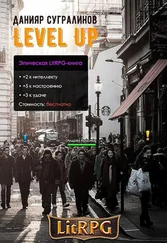Gregory’s first publication, in a Soviet math journal, came when he was sixteen years old: “Some Results in the Theory of Infinitely Long Expressions.” Already you can see where he was headed. David, sensing his younger brother’s power, encouraged him to grapple with central problems in mathematics. In 1900, at the dawn of the twentieth century, the German mathematician David Hilbert had proposed a series of twenty-three great problems in mathematics that remained to be solved, and he’d challenged his colleagues, and future generations, to solve them. They became known as the Hilbert problems. At the age of seventeen, Gregory Chudnovsky made his first major discovery when he solved Hilbert’s Tenth Problem. To solve a Hilbert problem would be an achievement for a lifetime; Gregory was a high school student who had read a few books on mathematics. Strangely, a young Russian mathematician named Yuri Matyasevich had also just solved Hilbert’s Tenth Problem, but Gregory hadn’t heard the news. Eventually, Matyasevich said that the Chudnovsky method was the preferred way to solve Hilbert’s Tenth Problem.
The brothers enrolled at Kiev State University, and took their PhDs at the Ukrainian Academy of Sciences. At first, they published their papers separately, but as Gregory’s health declined, they began collaborating. They lived with their parents in Kiev until the family decided to try to take Gregory abroad for medical treatment. In 1976, Volf and Malka applied to the government of the USSR for permission to emigrate. Volf was immediately fired from his job.
It was a totalitarian state. The KGB began tailing the brothers. “I had twelve KGB agents on my tail,” David told me. “No, look, I’m not kidding! They shadowed me around the clock in two cars, six agents in each car—three in the front seat and three in the backseat. That was how the KGB operated.” One day in 1976, David was walking down the street when KGB officers attacked him, fracturing his skull. He nearly died. He didn’t dare go to the hospital; he went home instead. “If I had gone to the hospital, I would have died for sure,” he said. “The hospital was run by the state. I would forget to breathe.”
One July day, plainclothesmen from the KGB accosted Volf and Malka on a street corner and beat them up. They broke Malka’s arm and fractured her skull. David took his mother to the hospital, where he found that the doctors feared the KGB. “The doctor in the emergency room said there was no fracture,” David recalled.
By this time, the Chudnovskys were quite well known to mathematicians in the United States. Edwin Hewitt, a mathematician at the University of Washington, in Seattle, had collaborated with Gregory on a paper. He brought the Chudnovskys’ case to the attention of Senator Henry M. “Scoop” Jackson—a powerful politician from Washington State—and Jackson began putting pressure on the Soviets to let the Chudnovsky family leave the country. Not long before that, two members of a French parliamentary delegation made an unofficial visit to Kiev to see what was going on with the Chudnovskys. One of the visitors was Nicole Lannegrace, who would later become David’s wife. The Soviet government unexpectedly let the Chudnovskys go. “That summer when I was getting killed by the KGB, I could never have imagined that the next year I would be in Paris in love, or that I would wind up in New York, married to a beautiful Frenchwoman,” David said.
* * *
IF PI IS TRULY RANDOM, then at times pi will appear to be orderly. Therefore, if pi is random it contains accidental order. For example, somewhere in pi a sequence may run 070707070707070707 for as many digits as there are atoms in the sun. It’s just an accident. Somewhere else the exact same sequence may appear, only this time interrupted, just once, by the digit 3. Another accident. Every possible arrangement of digits probably erupts in pi, though this has never been proved. “Even if pi is not truly random, you can still assume that you get every string of digits in pi,” Gregory told me. In this respect, pi is like the Library of Babel in the story by Jorge Luis Borges. In that story, Borges imagined a library of vast size that contained all possible books.
You could find all possible books in pi. If you were to assign letters of the alphabet to combinations of digits—for example, the letter a might be 12, the letter b might be 34—you could turn the digits of pi into letters. (It doesn’t matter what digits are assigned to what letters—the combination could be anything.) You could do this with all alphabets and ideograms in all languages. Then pi could be turned into strings of written words. Then, if you could look far enough into pi, you would probably find the expression “See the U.S.A. in a Chevrolet!” Elsewhere, you would find Christ’s Sermon on the Mount in his native Aramaic tongue, and you would find versions of the Sermon on the Mount that are blasphemy. Also, you would find a guide to the pawnshops of Lubbock, Texas. It might or might not be accurate. Even so, somewhere else you would find the accurate guide to Lubbock’s pawnshops…if you could look far enough into pi. You would find, somewhere in pi, the unwritten book about the sea that James Joyce supposedly intended to tackle after he finished Finnegans Wake. You would find the collected transcripts of Saturday Night Live rendered into Etruscan. You would find a Google-searchable version of the entire Internet with every page on it exactly as it existed at midnight on July 1, 2007, and another version of the Internet from thirty seconds later. Each occurrence of an apparently ordered string in pi, such as the words “Ruin hath taught me thus to ruminate, / That Time will come and take my love away,” is followed by unimaginable deserts of babble. No book and none but the shortest poems will ever actually be seen in pi, for it is infinitesimally unlikely that even as brief a text as an English sonnet will appear in the first 10 77digits of pi, which is the longest piece of pi that can be calculated in this universe.
Anything that can be produced by a simple method is orderly. Pi can be produced by very simple methods; it is orderly, for sure. Yet the distinction between chance and fixity dissolves in pi. The deep connection between order and disorder, between cacophony and harmony, seems to be tantalizingly almost visible in pi, but not quite. “We are looking for some rules that will distinguish the digits of pi from other numbers,” Gregory said. “Think of games for children. If I give you the sequence one, two, three, four, five, can you tell me what the next digit is? A child can do it: the next digit is six. What if I gave you a sequence of a million digits from pi? Could you tell me the next digit just by looking at it? Why does pi look totally unpredictable, with the highest complexity? For all we know, we may never find out the rule in pi.”
* * *
HERBERT ROBBINS, the coauthor of What Is Mathematics?, the book that had turned the Chudnovsky brothers on to math, was an emeritus professor of mathematical statistics at Columbia University and had become friends with the Chudnovskys. He lived in a rectilinear house with a lot of glass in it, in the woods near Princeton, New Jersey. Robbins was a tall, restless man in his seventies, with a loud voice, furrowed cheeks, and penetrating eyes. One day, he stretched himself out on a daybed in a garden room in his house and played with a rubber band, making a harp across his fingertips.
“It is a very difficult philosophical question, the question of what ‘random’ is,” Robbins said. He plucked the rubber band with his thumb, boink, boink. “Everyone knows the famous remark of Albert Einstein, that God does not throw dice. Einstein just would not believe that there is an element of randomness in the construction of the world. The question of whether the universe is a random process or is determined in some way is a basic philosophical question that has nothing to do with mathematics. The question is important. People consider it when they decide what to do with their lives. It concerns religion. It is the question of whether our fate will be revealed or whether we live by blind chance. My God, how many people have been murdered over an answer to that question! Mathematics is a lesser activity than religion in the sense that we’ve agreed not to kill each other but to discuss things.”
Читать дальше








![Shin_Stark - В подземелье я пойду, там свой level подниму X [СИ]](/books/384602/shin-stark-v-podzemele-ya-pojdu-tam-svoj-level-po-thumb.webp)



